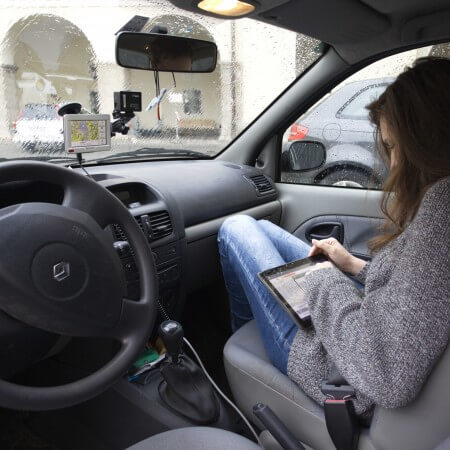On longer trips and unfamiliar routes, drivers often use assisting in-car systems such as global positioning systems (GPS). When front-seat passengers are riding along, they often support the driver with the navigation task, for example, by reading directions aloud or handling the system. Current in-car navigation systems are targeted at the driver but do not take advantage of the front seat passenger’s role as active supporter of the driver. Neither are they designed for collaborative usage.
In order to gain a deeper understanding of collaboration in the car, we conducted a series of ethnographic studies. The first focused on how collaboration and communication already take place in the car while driving with one or more passengers. The second ethnography was conducted to explore practices of lone commuters during congestion. In the third ethnography, we investigated collaborative navigation techniques.
Based on these insights, we created a system, labeled Co-Navigator, running on a tablet, which serves as a GPS navigation system for front-seat passengers. It provides more details about the route, such as information about construction sites, potholes, or narrow turns, which the front-seat passenger could communicate to the driver to support him/her more appropriate in his/her driving task.




